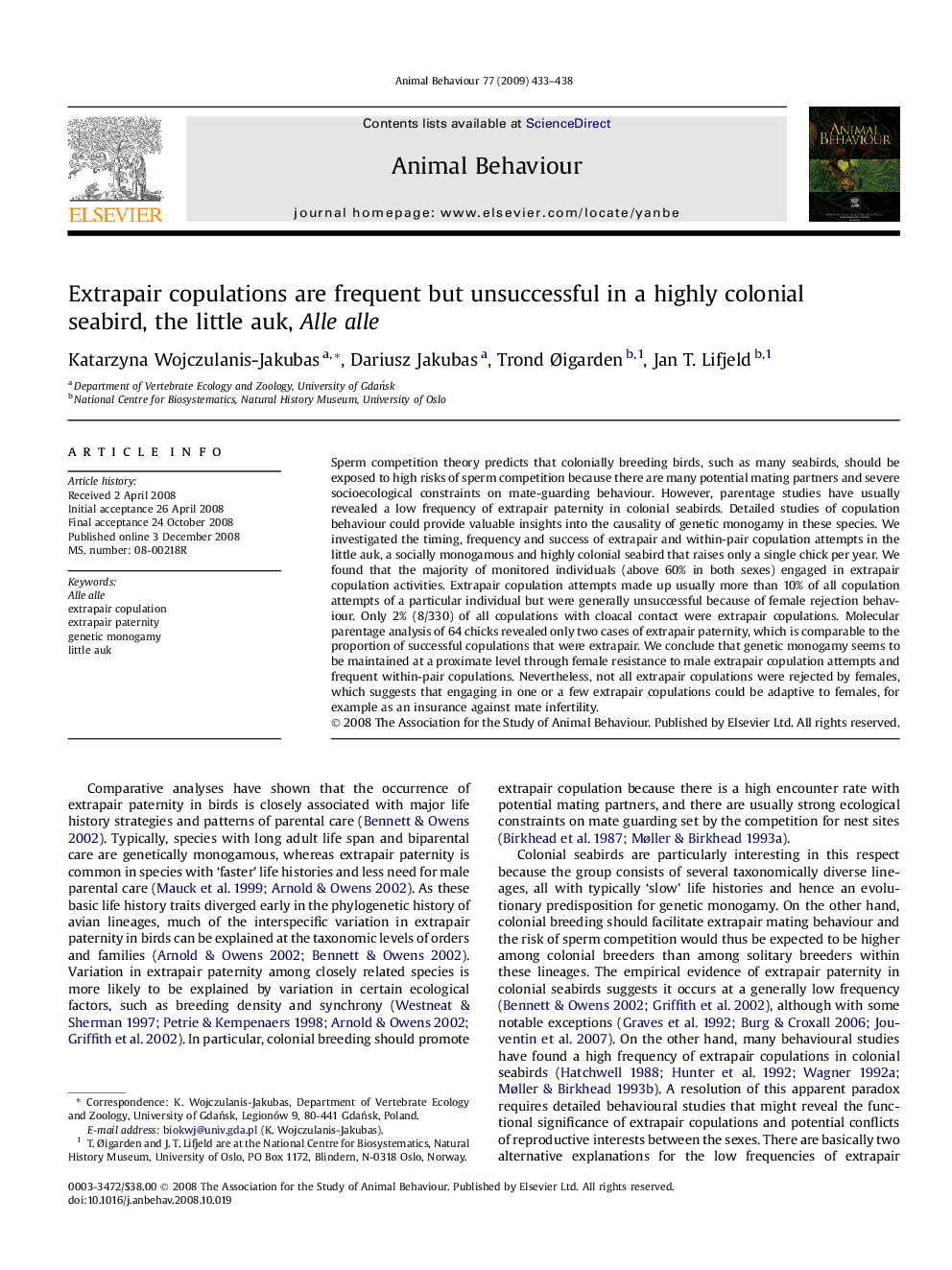| Article ID | Journal | Published Year | Pages | File Type |
|---|---|---|---|---|
| 2418167 | Animal Behaviour | 2009 | 6 Pages |
Sperm competition theory predicts that colonially breeding birds, such as many seabirds, should be exposed to high risks of sperm competition because there are many potential mating partners and severe socioecological constraints on mate-guarding behaviour. However, parentage studies have usually revealed a low frequency of extrapair paternity in colonial seabirds. Detailed studies of copulation behaviour could provide valuable insights into the causality of genetic monogamy in these species. We investigated the timing, frequency and success of extrapair and within-pair copulation attempts in the little auk, a socially monogamous and highly colonial seabird that raises only a single chick per year. We found that the majority of monitored individuals (above 60% in both sexes) engaged in extrapair copulation activities. Extrapair copulation attempts made up usually more than 10% of all copulation attempts of a particular individual but were generally unsuccessful because of female rejection behaviour. Only 2% (8/330) of all copulations with cloacal contact were extrapair copulations. Molecular parentage analysis of 64 chicks revealed only two cases of extrapair paternity, which is comparable to the proportion of successful copulations that were extrapair. We conclude that genetic monogamy seems to be maintained at a proximate level through female resistance to male extrapair copulation attempts and frequent within-pair copulations. Nevertheless, not all extrapair copulations were rejected by females, which suggests that engaging in one or a few extrapair copulations could be adaptive to females, for example as an insurance against mate infertility.
